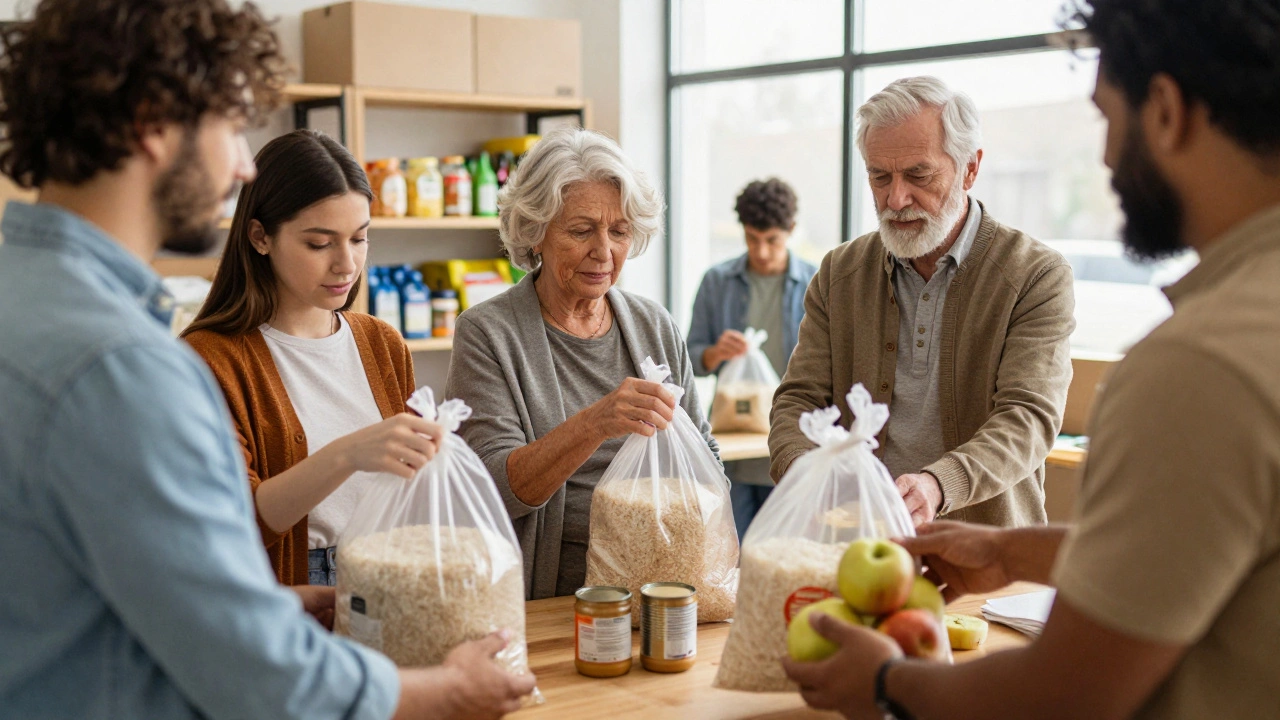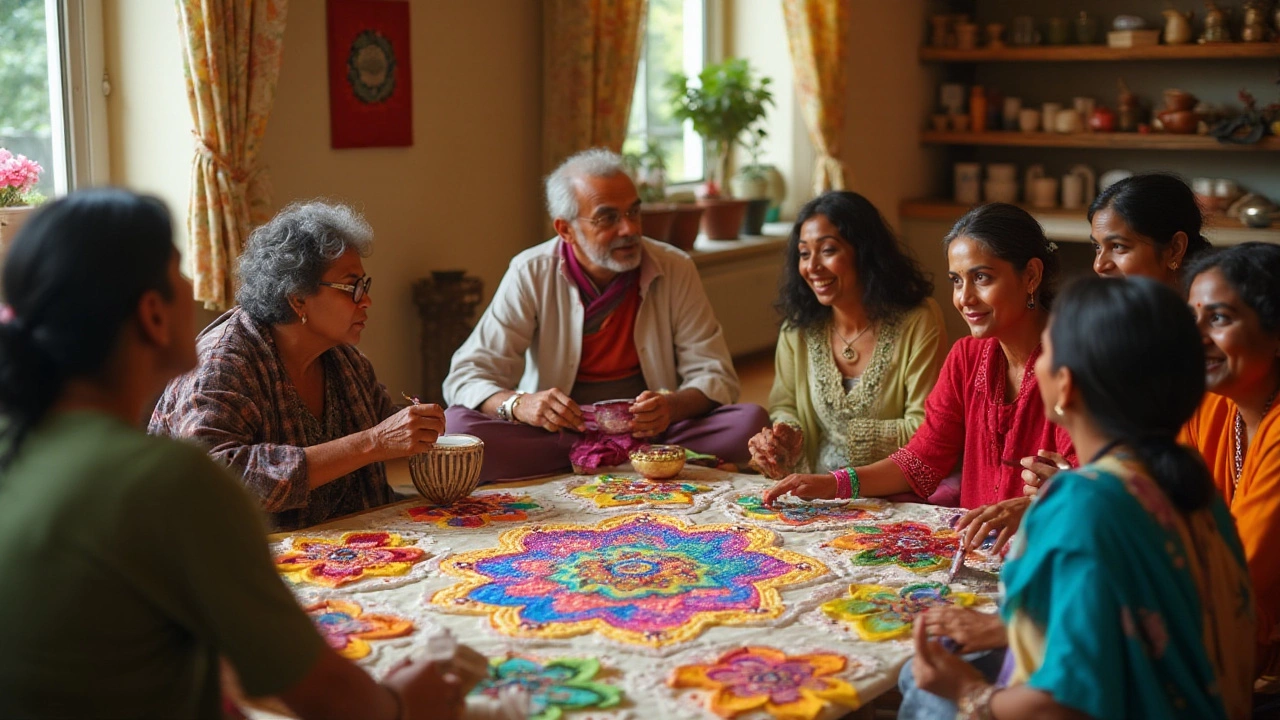Community Support Groups – Find, Join & Benefit Today
Feeling alone or looking for a place to share your story? Community support groups are built for real people who need a shoulder, advice or just a friendly chat. The right group can lift your mood, give you useful tools, and connect you with folks who get what you’re going through.
Why community groups matter
These groups bring together people with similar challenges or interests. Whether it’s a mental‑health circle, a hobby‑based club, or a local volunteer crew, you instantly get a sense of belonging. Studies show that regular interaction with a supportive group reduces stress and improves confidence. In plain terms, you’re less likely to feel stuck when you have a regular spot to talk and act.
Our own article Find a Support Group Near You: Practical Steps and Best Resources explains how many members say the simple act of showing up changes their outlook. You’ll also hear why social clubs are a hidden gem for making friends – see Best Place to Make Friends: Why Social Clubs Actually Work for real‑world examples.
Practical steps to find a group near you
Start with places you already visit – libraries, community centers, local cafés. Look for bulletin boards or ask staff about regular meetings. Many groups also post on social media or local forums; a quick search for “support group” plus your town often yields results.
Next, narrow down what you need. If you’re dealing with depression, the article Is There a Group Chat for People with Depression? offers tips on safe online options and how to transition to face‑to‑face meetups. For broader social support, try the guide How to Find Social Support: Tapping into Local Support Groups, which walks you through checking meeting times, group size, and the vibe you’re comfortable with.
When you contact a group, ask these three quick questions: Who leads the meeting? What’s the typical agenda? Is there a fee? Knowing the answers helps you avoid groups that feel off‑track.
Don’t be shy about attending a trial session. Most groups welcome newcomers and understand that the first visit can feel awkward. Bring a notebook, ask a few questions, and see if the conversation clicks.
If you prefer online connections, look for local chat platforms or regional forums. The article How to Find a Local Support Network highlights how online groups can bridge gaps, especially in rural areas.
Remember, the goal isn’t to solve everything in one meeting. It’s to build a routine where you get small wins – a new friend, a coping technique, or simply a safe space to vent. Over time, those wins add up to bigger confidence.
Finally, give back when you feel ready. Volunteering a few hours at a group’s event not only deepens your ties but also reinforces the support you receive. It’s a win‑win you’ll find in many of our featured stories.
Ready to start? Pick one of the steps above, check our post list for extra guidance, and take the first step today. Your community is waiting.
What to Do When You're Hungry and Have No Money for Food
If you're hungry and have no money for food, food banks, pantries, and meal programs are ready to help. No judgment. No paperwork. Just food. Here's how to find help fast.
Read MoreCan Anyone Go to a Local Food Bank? Here’s the Real Answer
You don't need to be homeless or unemployed to use a food bank. In New Zealand, anyone struggling to afford food can walk in and get help-no questions asked. Here's how it really works.
Read MoreThree Main Types of Help for Mental Disorders
Explore the three main types of help for mental disorders-psychotherapy, medication, and peer support-learn how each works, costs, effectiveness, and how to choose the right mix.
Read MoreFind a Support Group Near You: Practical Steps and Best Resources
Looking for a support group nearby? Discover easy ways to find local support, tips to choose the right group, and resources for your journey.
Read MoreBest Places for Singles to Meet in Richmond VA: Top Spots & Dating Tips
Discover where singles meet in Richmond VA. Find the best places and actionable tips for connecting, dating, and building relationships in Richmond’s vibrant social scene.
Read MoreIs There a Group Chat for People with Depression? Find Real Support Locally
Depression can feel like you're completely alone, but there are real ways to connect and find support. This article explores whether group chats for people with depression exist, how safe and helpful they are, and what options local support groups provide. You'll get practical tips to find the support that fits your style and comfort level. Discover how to avoid common pitfalls while building real connections with others who truly get what you're going through. The focus is on actionable advice and honest answers, not empty promises.
Read MoreBest Place to Make Friends: Why Social Clubs Actually Work
Wondering where to make real friends as an adult? This article explains why social clubs are perfect for everyone tired of small talk at work or awkward online chats. Learn how these communities bring people together, what kinds exist, and how you can get the most out of joining. Find genuine tips for making connections that last. Real stories, facts, and easy advice included.
Read MoreHow to Find Social Support: Tapping into Local Support Groups
Feeling isolated can drag anyone down fast, but finding local support groups can make a real difference. This article breaks down how to spot the groups that fit your needs, ways to reach out, and how to get comfortable joining in. Dive into practical tips, straight-up advice, and a few facts that might surprise you. Learn how to build connections that actually stick. No complicated jargon—just real info you can use.
Read MoreHow to Find a Local Support Network
Finding a local support network can feel daunting, but it's a crucial step for anyone seeking community and assistance. This article offers practical advice on how to connect with the right group for your needs. Explore the importance of using local resources like libraries and community centers, and discover tips for engaging online. Whether you're facing challenges or simply looking to connect with like-minded individuals, these strategies will point you in the right direction.
Read MoreWhy Do People Love Social Clubs?
Social clubs offer unique opportunities for people to connect, unwind, and engage in shared interests. Whether for networking, meeting new friends, or exploring hobbies, these clubs create a sense of belonging. Members often enjoy activities and experiences that aren't easily found elsewhere. By joining a club, individuals can also develop new skills and broaden their social circles.
Read MoreExploring the Benefits of Joining Social Clubs
This article delves into the compelling reasons to join social clubs, highlighting their benefits in fostering community, enhancing personal growth, expanding networks, and satisfying various interests. Social clubs offer unique opportunities to build meaningful relationships, explore new hobbies, and create an engaging social life. Whether you're looking to meet new friends, develop a skill, or find a supportive community, these clubs could be the key to enriching your social experience.
Read MoreDiscovering the Perfect Local Support Groups for Your Needs
Support groups can be a crucial pillar in an individual's healing and growth journey. This article explores the characteristics of effective local support groups, the benefits they offer, and how to find ones that align with personal needs. It will also touch upon the importance of community interaction and provide tips for getting the most out of these group settings. Understanding how different types of groups function can help participants choose the best support framework for them.
Read More- 1
- 2











